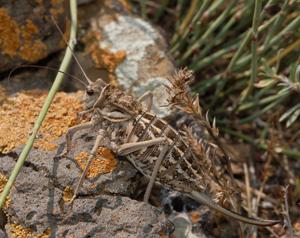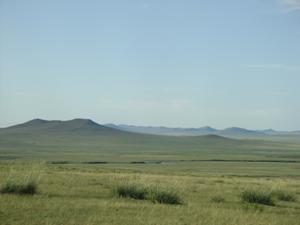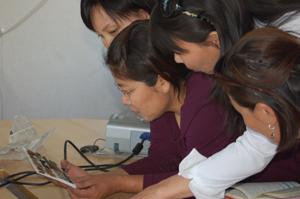Galina Akulova
The project aims to reveal and conserve rare and endangered species of insects in North-Eastern Mongolia. We’ll popularize insects and their habitats and necessity of their conservation among local people.

The entomofauna of North-Eastern Mongolia is of great interest and includes Manchurian, Siberian, daurian, mid-Asian and other chorological groups of species. Insects are the main group among animals of steppe ecosystems because their biodiversity and mass and play dominant role in keeping (sustain) ecosystem balance. But till now it is poorly studied group, especially in eastern Mongolia. The causes of this are the great species diversity, that demands many specialists, absence of local specialists, and less appeal of entomological studies for young people etc.

The project aims to reveal and conserve rare and endangered species of insects in North-Eastern Mongolia. Our study allows to extend knowledge about local fauna and to attract attention to problems of conservation of biodiversity in Mongolia. We popularize information on insects and their habitats and necessity of their conservation among local people.

The field work was conducted in the period 01.08. - 25.08.2009. Data was obtained during the expedition through the Eastern Mongolia from Choibalsan to Sainshand (total 2200 km). The research team was: entomologists - Galina Akulova, Yury Danilov, geobotanist - Tatyana Tkachuk and GIS-specialist - Anna Barashkova.
We collected field material (insects) of base orders (Coleoptera, Orthoptera, Hymenoptera) and less of other orders. Geobotanical sampling was done for habitats of insects. It was fined out that in many places plant communities are overgrazed. In such habitats total species diversity of insects drops whereas abundance of pest species rises. For example, the density of Calliptamus abbreviatus Ikonn. (Orthoptera), one of pest species, was more than 10 individuals per sample plot (0,25 × 0,25 m).
We collaborated with the stuff of Eastern Mongolian Protected Areas Administration (EMPA) and students. A seminar on field study and conservation of rare species of insects and their habitats was conducted in EMPA office. Ecosystem role, methods of study, monitoring, and species conservation were discussed.
The field data obtained during our expedition will become the base of scientific study of fauna and ecology of insects and an educational ecological program for local people.